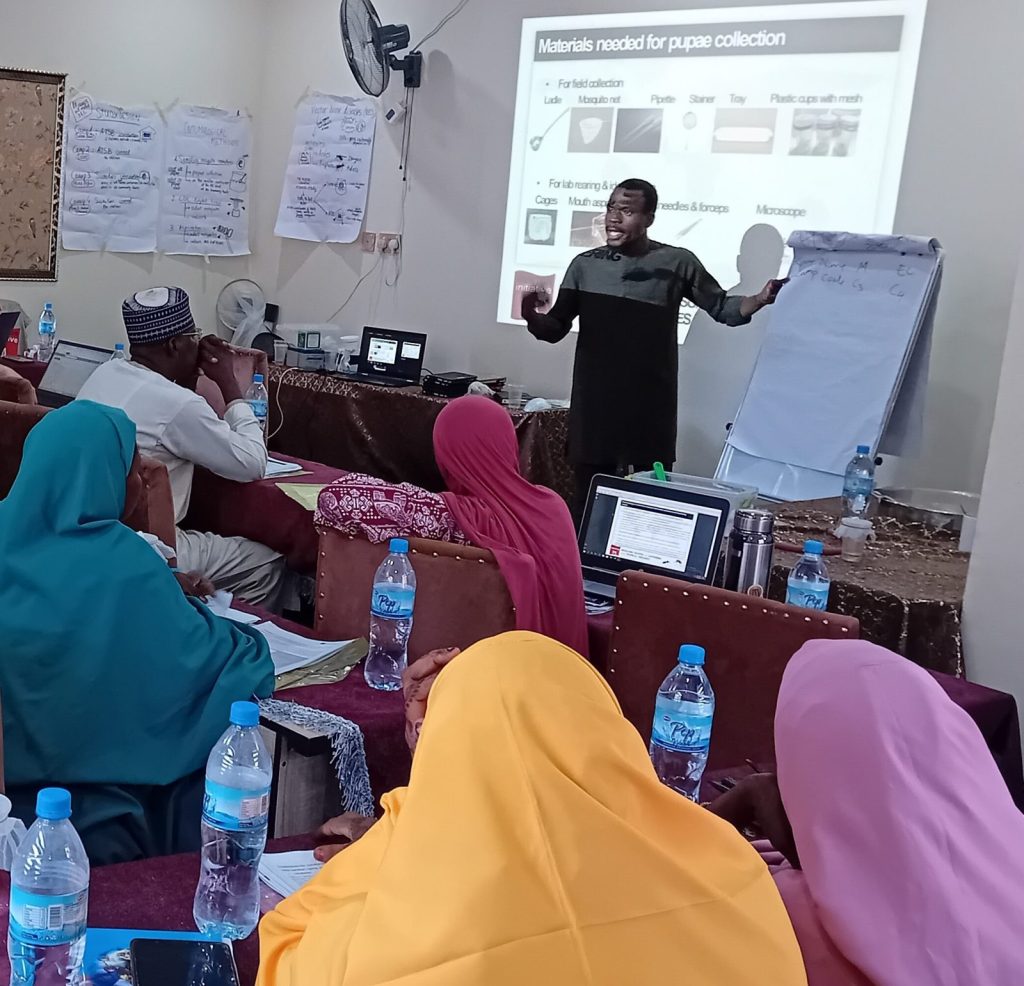A new field evaluation trial in Internally Displaced Person camps in Borno State will evaluate the effectiveness of two vector control products on the Aedes mosquito, which transmits diseases such as dengue, chikungunya and yellow fever.
Communities living in IDP camps in northeast Nigeria face a high risk from these diseases because of the high presence of Aedes species which have different behaviours to malaria-transmitting Anopheles mosquitoes.
Mainly, that Aedes lay their eggs in water present in buckets, water tanks, old tires and other storage and waste containers, as well as bite mostly during daylight hours, both outdoors and indoors.
To effectively address the threat of this vector in the harsh camp environment, MENTOR will evaluate Sumilarv™ 2MR which disrupts the breeding cycle in water containers and Attractive toxic sugar bait (ATSB®) stations which are designed to kill both male and female mosquitoes.
Over the past month, we have trained the field team on the research objectives, study design and operating procedures, and will shortly finish the baseline entomological activities. The next steps will be distributing the ATBS stations and Sumilarv discs among the camps in the intervention study group.
Only by innovating and adding new control tools to existing one’s will we be able to reduce the Aedes mosquito population as well as other disease-carrying vectors, and protect people from harmful and potentially fatal diseases.
- News
New trial of vector control tools addressing Aedes begins in IDP camps in Nigeria.
- Kathryn Johnson

